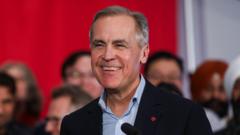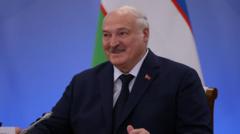Justin Trudeau, who has led Canada for nearly a decade, revealed his intention to resign in the upcoming months as the nation grapples with economic uncertainties and rising discontent among voters. His departure comes on the heels of a turbulent political climate, exacerbated by the election of the incoming Trump administration pledging strict tariffs on Canadian goods. With Parliament suspended until late March, the Liberal Party now faces the task of selecting a new leader through a national election.
Trudeau to Step Down as Prime Minister Amid Political Turmoil

Trudeau to Step Down as Prime Minister Amid Political Turmoil
Canadian Prime Minister announces resignation following public backlash and economic challenges.
Frustration over immigration policies and the long-term effects of soaring inflation during the pandemic have contributed to Trudeau's decision. Despite inflation rates dropping below 2%, unemployment continues to hover above 6%, leaving many Canadians disillusioned. In his resignation announcement, Trudeau emphasized the need to "reset" the political landscape, expressing that his departure could help reduce tensions within the electorate.
A recent Ipsos poll indicated that 73% of Canadians, including 43% of Trudeau's own party supporters, believe it's time for new leadership. As the political landscape shifts, Canada braces for the next chapter in its governance.
A recent Ipsos poll indicated that 73% of Canadians, including 43% of Trudeau's own party supporters, believe it's time for new leadership. As the political landscape shifts, Canada braces for the next chapter in its governance.























